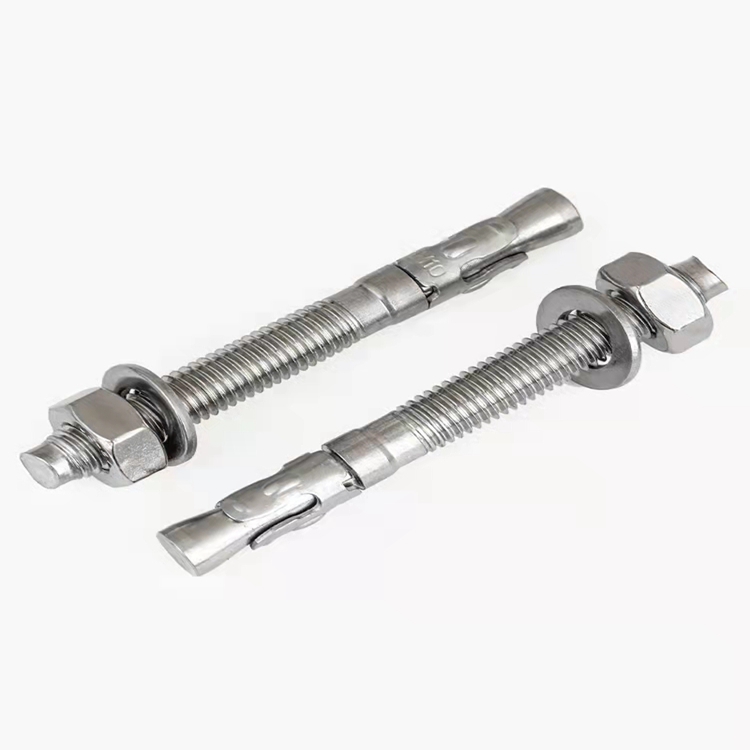china din125 flat washer
Nov . 19, 2024 22:49 Back to list
china din125 flat washer
A Comprehensive Guide to China DIN 125 Flat Washers
In the world of engineering and construction, every small component plays a significant role in ensuring durability and reliability. One such essential component is the flat washer, specifically the DIN 125 flat washer. Originating from Germany, the DIN (Deutsches Institut für Normung) standardizes various products and components to ensure uniformity and efficiency in applications. The DIN 125 flat washer is widely used across various industries, and China has emerged as a key player in its manufacturing and distribution.
What is a DIN 125 Flat Washer?
A DIN 125 flat washer is a circular disc with a central hole, designed to distribute the load of a threaded fastener (such as a bolt or nut). This distribution helps to prevent damage to the surfaces being joined and reduces the chances of connection failure. Made from materials such as steel, stainless steel, and non-metallic options, these washers come in various sizes and thicknesses to suit specific applications.
Importance of Flat Washers
Flat washers serve multiple purposes in mechanical applications. They help to
1. Spread the Load By increasing the surface area under the fastener, flat washers distribute the load more evenly, protecting the material from wear and deformation.
2. Prevent Leakage In systems involving fluids, washers can assist in creating a tight seal, especially when used in conjunction with bolts and nuts to minimize leaks.
4. Protect Surfaces The use of washers prevents direct contact between the fastener and the surface, thereby reducing scratches or damage during assembly.
Manufacturing and Sourcing in China
china din125 flat washer

China is home to numerous manufacturers of DIN 125 flat washers, capitalizing on advanced production technologies and stringent quality control measures. The high demand for these components in both domestic and international markets has led to the establishment of a competitive manufacturing sector.
Chinese manufacturers often offer a variety of materials, such as carbon steel, stainless steel, or nylon, to meet various operational requirements. Moreover, many suppliers provide custom solutions, allowing clients to specify dimensions, hole size, and thickness based on their project needs.
Quality is paramount in the production of flat washers. Many companies adhere to international standards and certifications, ensuring their products meet the rigorous demands of different industries, including automotive, aerospace, and construction.
Considerations for Choosing Flat Washers
When selecting DIN 125 flat washers, consider the following factors
1. Material Depending on the application, choose a washer material that can withstand environmental conditions, such as moisture, temperature, and chemicals.
2. Size and Thickness The dimensions of the washer should be appropriate for the fasteners being used and the specific application requirements.
3. Finish Some washers may undergo treatments such as galvanization or plating to enhance corrosion resistance.
4. Standards Compliance Ensure that the washers meet the required DIN standards, confirming their quality and performance.
Conclusion
In summary, China DIN 125 flat washers play an integral role in various engineering and construction applications. Their ability to enhance load distribution, prevent leakage, and protect surfaces makes them indispensable in many industries. With numerous manufacturers in China providing a wide array of options, sourcing high-quality flat washers has never been easier. Be mindful of the specific requirements for your application, and you will ensure optimal performance and longevity in your projects.
Latest news
-
High-Quality Panel Stud Bolt Reliable Panel Stud Bolt Factory & Suppliers
NewsJul.08,2025
-
High-Precision Fine Thread Locknuts Manufacturer & Supplier Custom Solutions
NewsJul.08,2025
-
PH Imperial Stud Bolt – High Strength Fasteners from Leading Supplier & Factory
NewsJul.07,2025
-
High-Quality Allen Wrench Bolts Leading Factory, Company & Suppliers
NewsJul.07,2025
-
Wholesale Ball Stud Bolt - High Quality Supplier & Factory Price Reliable Wholesale Ball Stud Bolt Company
NewsJul.06,2025
-
High-Strength Alloy Bolts Manufacturer & Supplier Quality Alloy Fasteners Factory
NewsJul.06,2025
